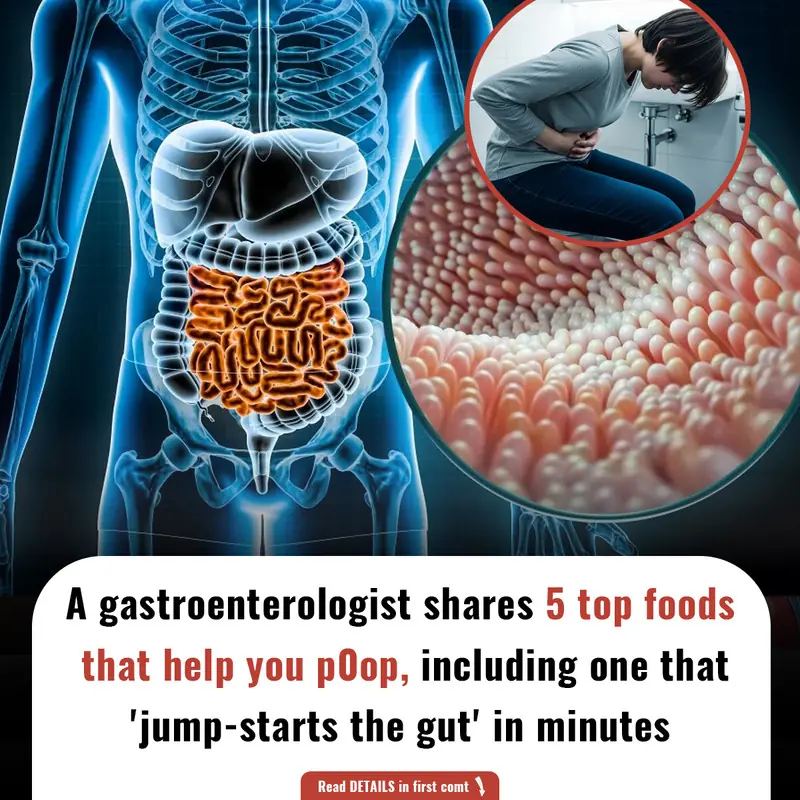
A gastroenterologist shares 5 top foods that help you p0op, including one that 'jump-starts the gut' in minutes
Stuck in pur-gut-ory?
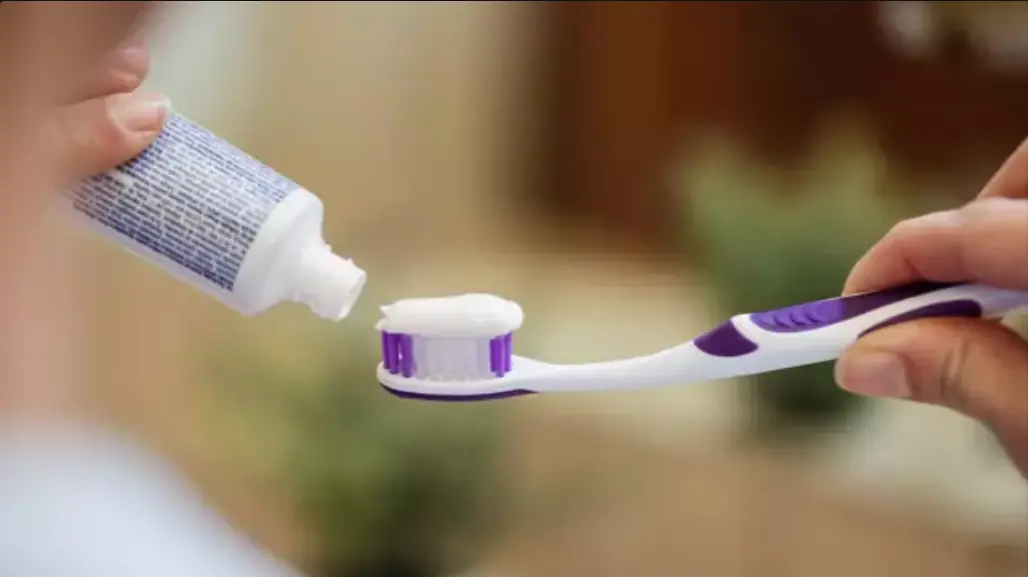
The Correct Way to Brush Your Teeth: What You Need to Know
Brushing your teeth is a basic part of daily hygiene that most of us perform at least twice a day without much thought. However, recent advice from functional dentist Dr. Victoria Sampson, shared on Steven Bartlett’s The Diary of a CEO podcast, suggests that many of us have been brushing our teeth wrong all along. According to Dr. Sampson, there's one crucial step that many people overlook during their brushing routine, which could be diminishing the benefits of the whole process.
The Common Mistake Most People Make When Brushing Their Teeth
Dr. Sampson highlighted a simple yet significant mistake that many people make while brushing: rinsing your mouth with water immediately after brushing. This step, which is common practice, could be counterproductive. Dr. Sampson explains that rinsing your mouth washes away the concentrated fluoride and other beneficial components of the toothpaste, leaving your teeth unprotected.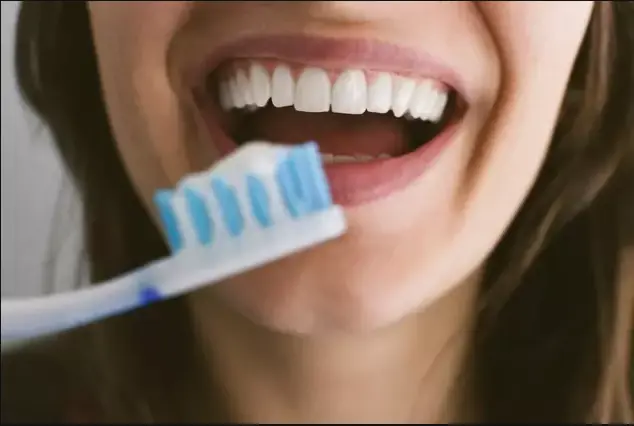 A dentist revealed the biggest mistake you're making when brushing your teeth (Westend61 / Getty)
A dentist revealed the biggest mistake you're making when brushing your teeth (Westend61 / Getty)
In her explanation, she likens this to applying sunscreen to your skin only to immediately shower off the product before going outside. Just as the sunscreen would be ineffective after washing it off, rinsing your mouth right after brushing removes the protective fluoride that toothpaste leaves behind on your teeth and gums.
Why Rinsing After Brushing Can Be Harmful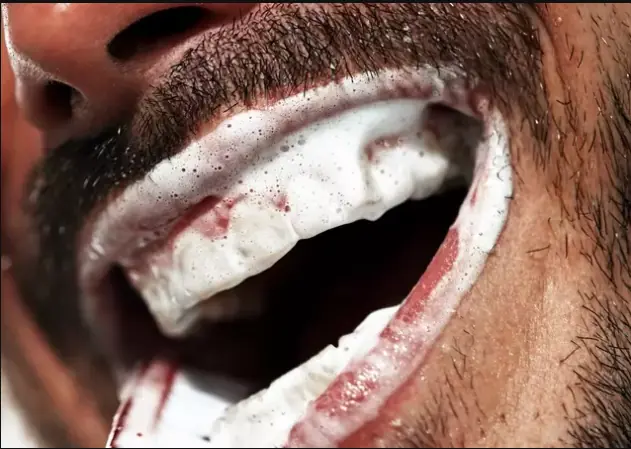 Dr Victoria Sampson explained that you should never rise after brushing (Daniel Day / Getty)
Dr Victoria Sampson explained that you should never rise after brushing (Daniel Day / Getty)
When you rinse your mouth after brushing, the toothpaste’s fluoride and other beneficial ingredients are washed away, reducing the effectiveness of the toothpaste. Dr. Sampson’s advice is to spit out the toothpaste after brushing but avoid rinsing with water. This allows the fluoride to stay on the teeth for a longer period, providing better protection and helping to prevent tooth decay.
The Correct Method of Brushing
Brush your teeth thoroughly, focusing on each tooth and ensuring you clean every surface.
Spit the toothpaste into the sink.
Do not rinse with water. Simply let the toothpaste residue remain on your teeth to allow the fluoride to keep working.
By following this technique, you ensure that your teeth receive the maximum benefit from the toothpaste’s active ingredients, especially fluoride, which is key to cavity prevention and overall oral health.
What Other Dental Experts Say
According to Sensodyne, a well-known toothpaste brand, rinsing immediately after brushing can wash away the fluoride, making it less effective. Their official website states, "Rinsing with mouthwash immediately after brushing may not be the best for your teeth, even if your mouthwash contains fluoride."
Several other dental experts agree with this advice. They emphasize that while mouthwash is beneficial, using it right after brushing can eliminate the fluoride concentration left on your teeth, thereby reducing its protective effects.
Why Not Rinsing Can Improve Oral Health
By keeping the fluoride on your teeth, you allow it to continue to work for a longer time, which helps protect your enamel from decay. This method also prevents the gums from getting irritated and helps to maintain overall gum health.
Conclusion: A Simple Change to Improve Your Oral Health
To summarize, the next time you brush your teeth, remember: after spitting out the toothpaste, don’t rinse. Allow the toothpaste to stay on your teeth for as long as possible to get the most out of the fluoride and other active ingredients.
By making this small adjustment to your routine, you could improve your oral health, reduce your risk of cavities, and maintain a healthier smile. If you're unsure or need more personalized advice, always consult with your dentist.
Sources:
Sensodyne - "Why rinsing after brushing isn't recommended"
The American Dental Association (ADA) - "How to Brush Your Teeth Properly"
Journal of the American Dental Association - Various studies on the effectiveness of fluoride and brushing techniques

Stuck in pur-gut-ory?
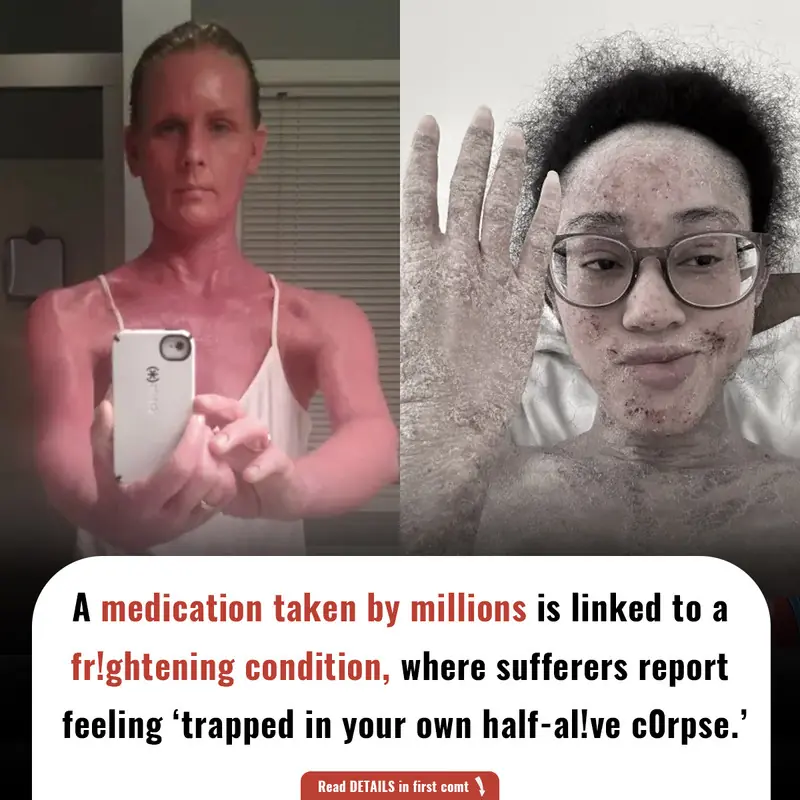
Kelly Barta was turning red.
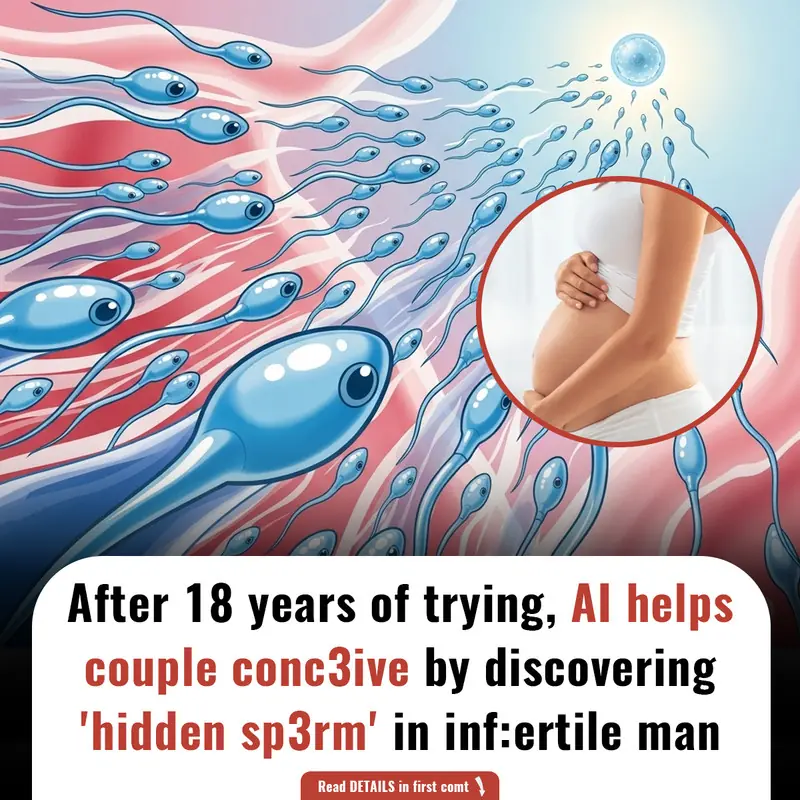
Could advanced goggles help in identifying hidden swimmers?

Discover the surprising secret to longevity. WWII veteran Leslie Lemon credits eating custard every day for his vibrant health at 106. Learn about his daily habit and how it contributes to his well-being.

Discover how Danielle Broadway lost 90 pounds and improved her gut health by quitting energy drinks and embracing intermittent fasting with the help of the Simple app. Learn the science behind intermittent fasting and the benefits of a healthier lifestyle

A 54-year-old man’s basketball injury led to the discovery of a life-threatening bl00d canc3r. Learn how symptoms like elevated protein levels in urine and bl00d led to an early canc3r diagnosis and why self-advocacy is crucial for health.
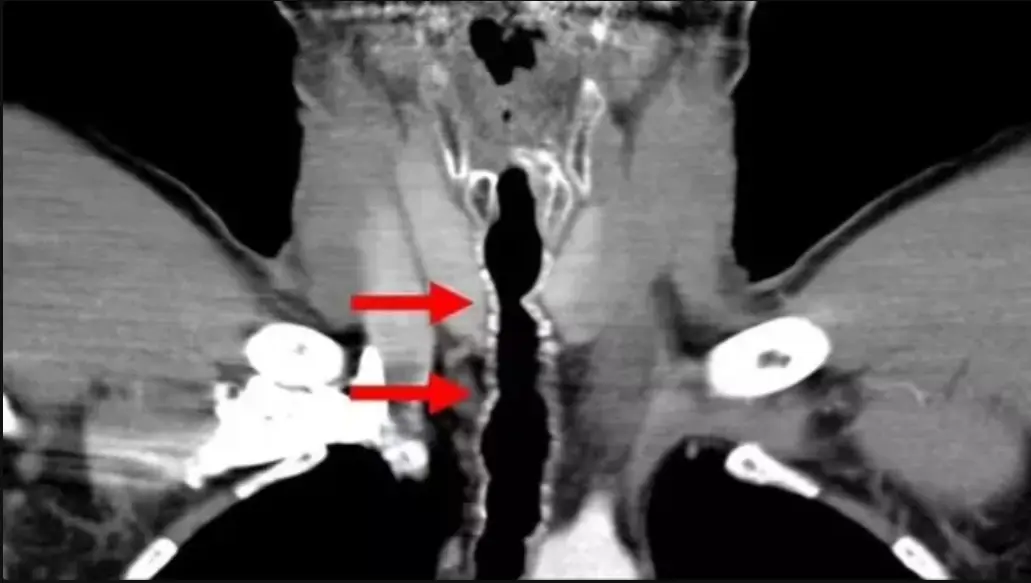
Discover the rare and alarming side effects of sm0king, including chronic cough and endotracheal hair growth. Learn how sm0king affects your health, with expert insights on the dang3rs and solutions.

Expert Jamie Frazer said that you should avoid this one thing to keep your luggage safe

It's very convenient, but questions have been raised on security with charging at airports
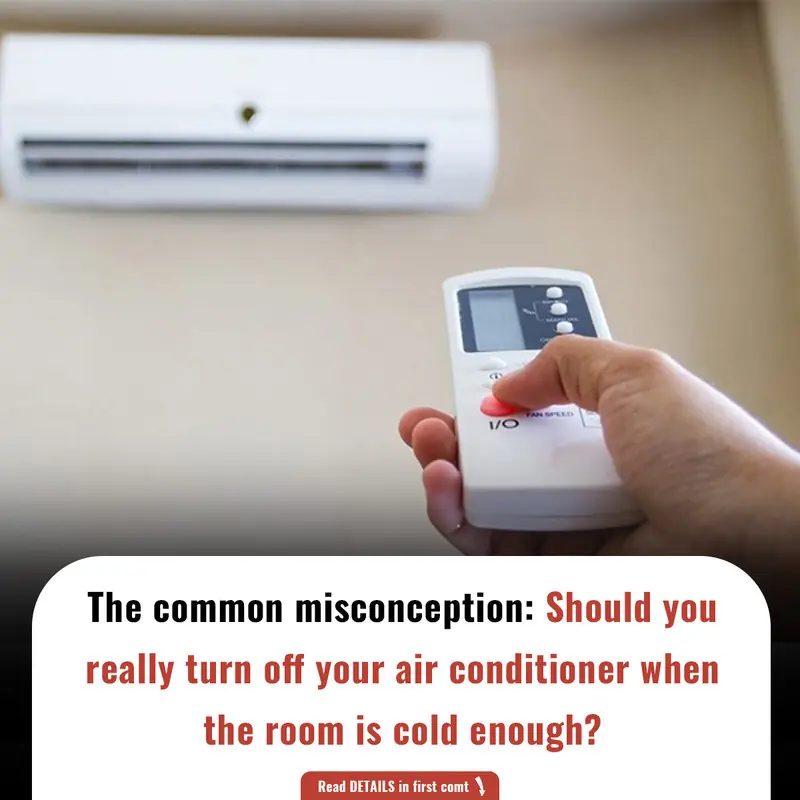
Having used the air conditioner for a long time, not all users know the tips or the correct ways to use it.
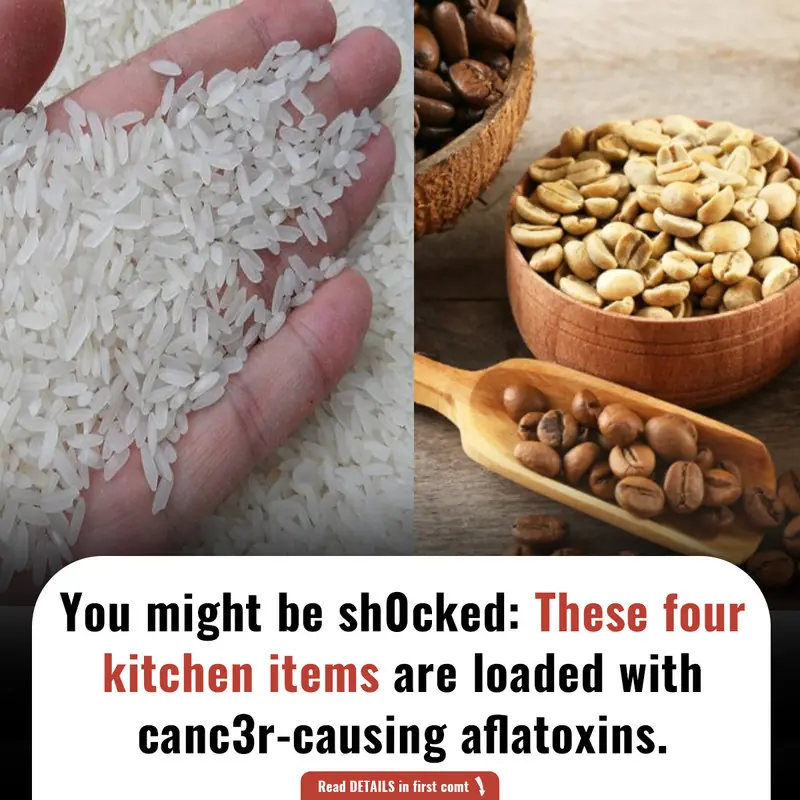
Aflatoxin, a carcinogenic substance, lurks in the kitchens of many families, but not everyone knows about it.

Many people, when talking about pork, usually only think of belly meat, ribs, and bone marrow... In fact, the pig has three parts that are both delicious and nutritious, which many people do not know to buy.
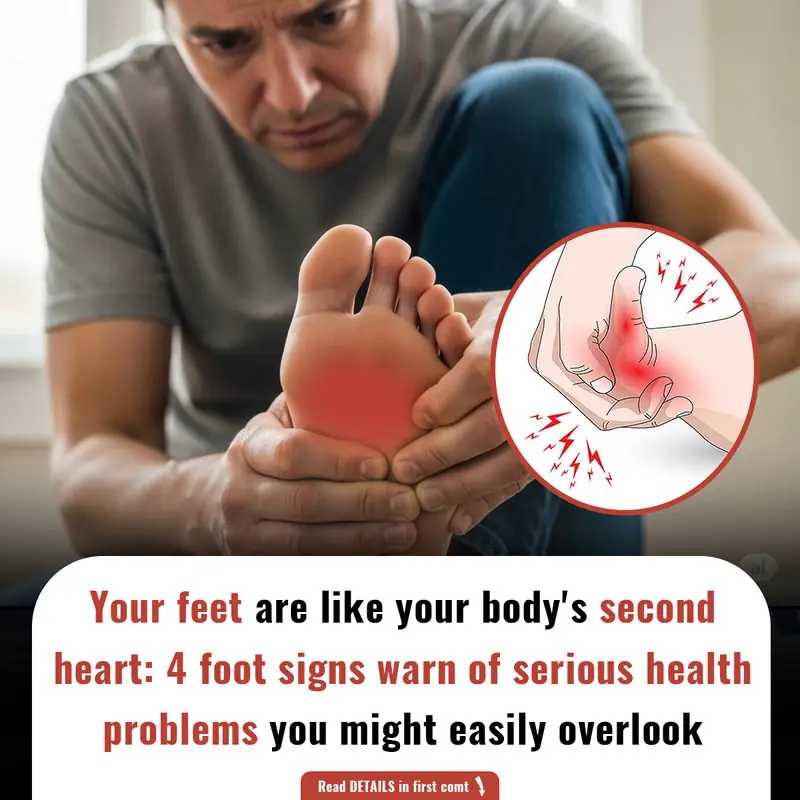
The feet are likened to the second heart of the body, so when you encounter some health issues, the feet will be one of the places that send warning signals.

Sudden Heavy Drinking in Your 30s Could Be an Early Sign of Dementia, Expert Warns
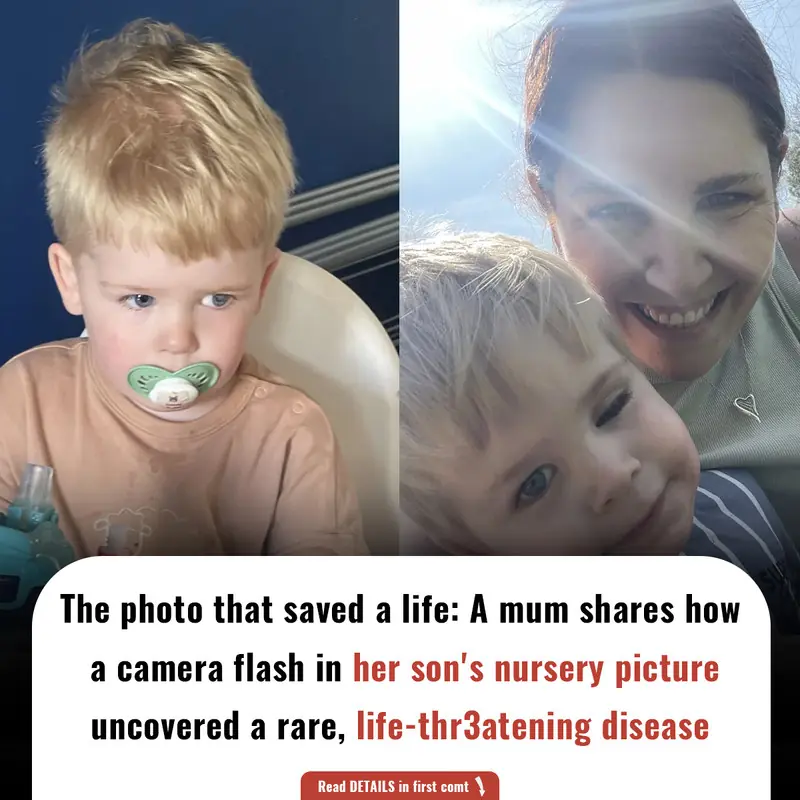
Laura Davies, from Wales, says she would have 'never known' without the photo
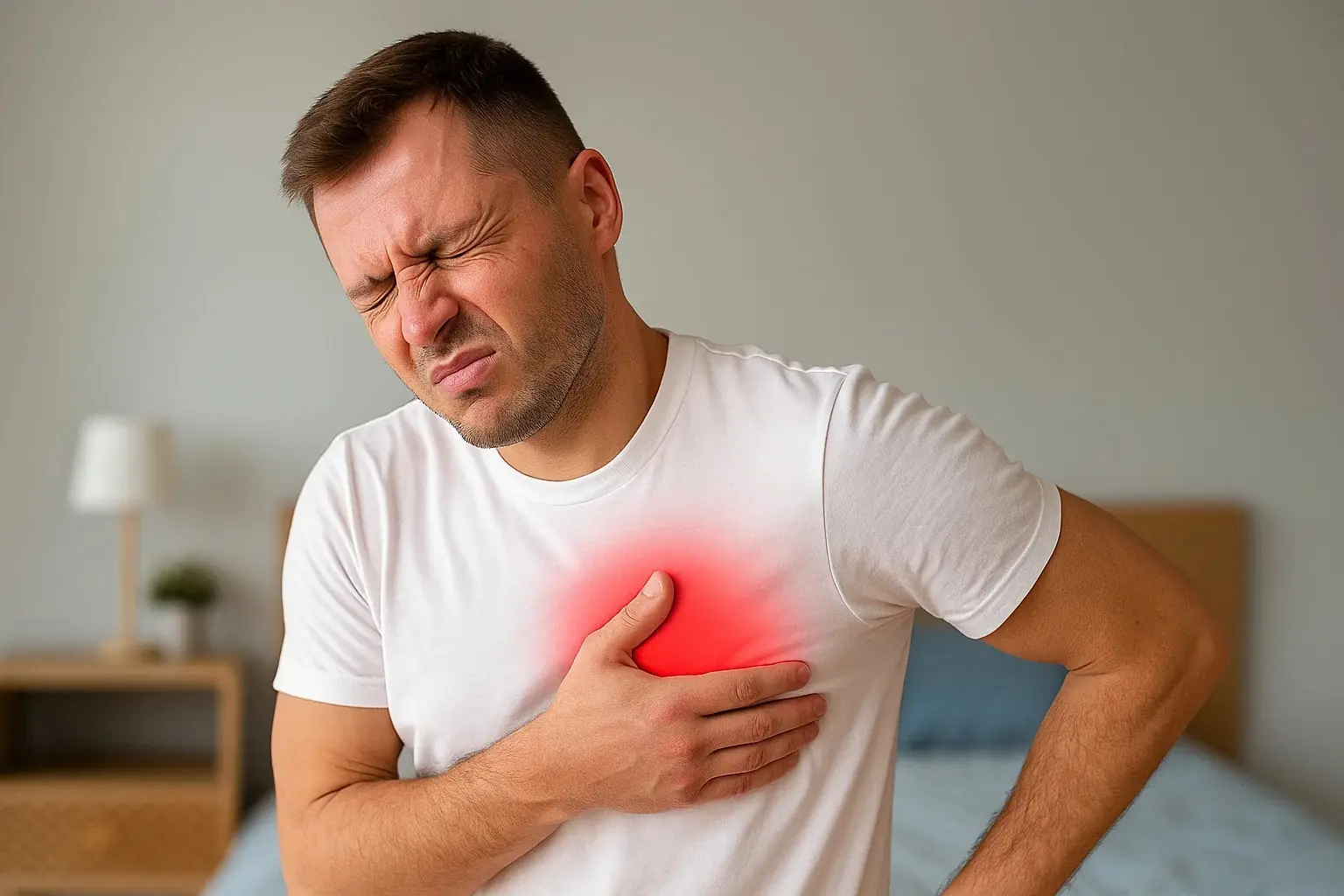
A stroke is a serious medical emergency. Leading a healthy lifestyle, including paying attention to what you do at night, can help reduce your risk.
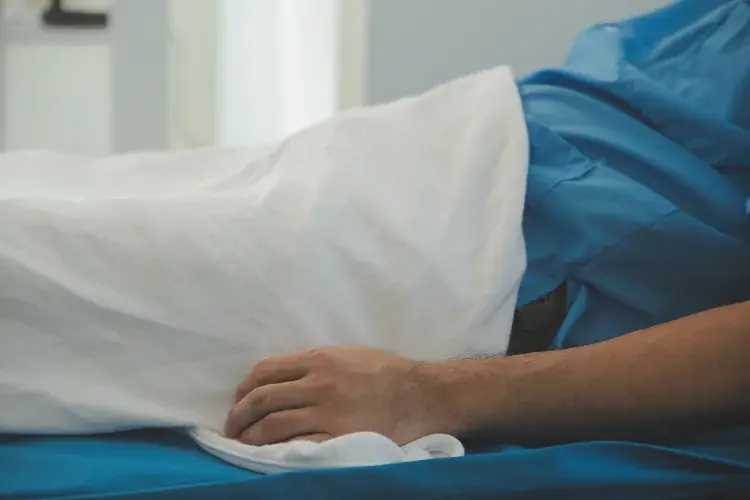
Discover the sh0cking health r!sks of v@ping through the real-life story of a 24-year-old man who suffered a heart att@ck and permanent lung dam@ge. Learn why quitting v@ping is cr:u:cial for your health.
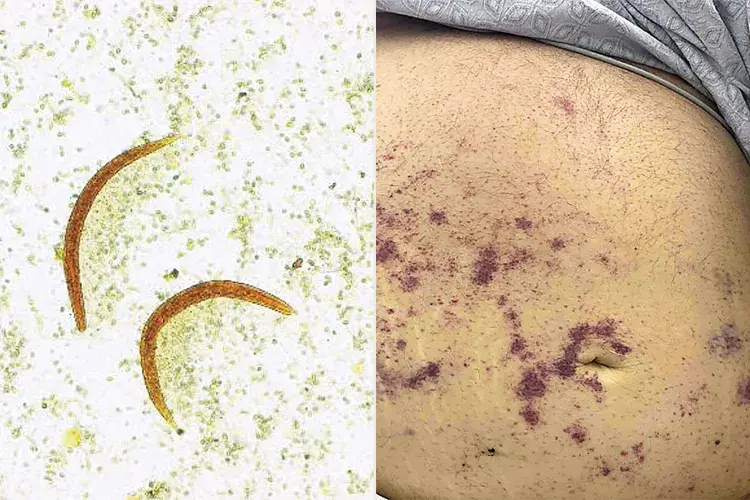
Two men in the U.S. contracted a parasitic infection after receiving kidneys from the same donor. Learn about this rare case, symptoms, diagnosis, and the importance of donor screening.
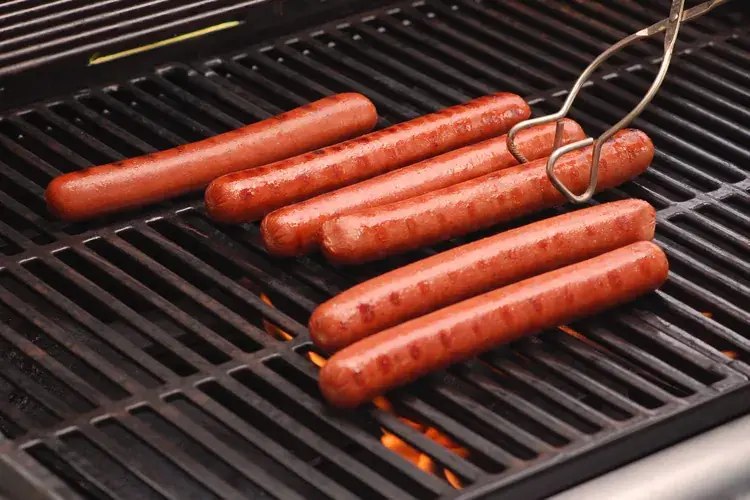
A recent study finds that eating processed meats like hot dogs increases the r!sk of chronic dise@ses, including type 2 diabetes, heart dise@se, and colorectal canc3r. Learn more about the health impacts.
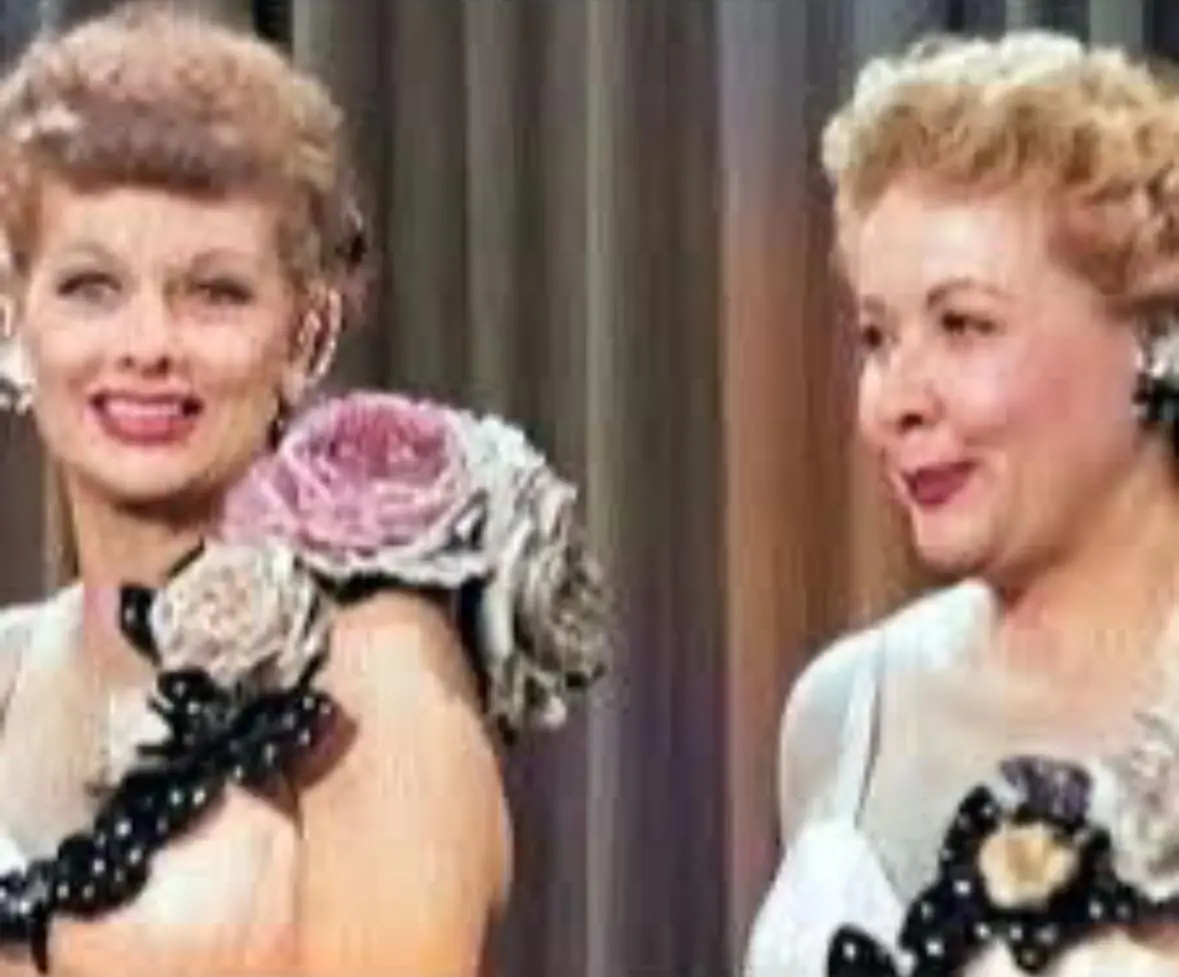
Discover the deep and lasting friendship between Lucille Ball and Vivian Vance, the stars of I Love Lucy, that went beyond the spotlight and shaped their lives both on and off the screen.
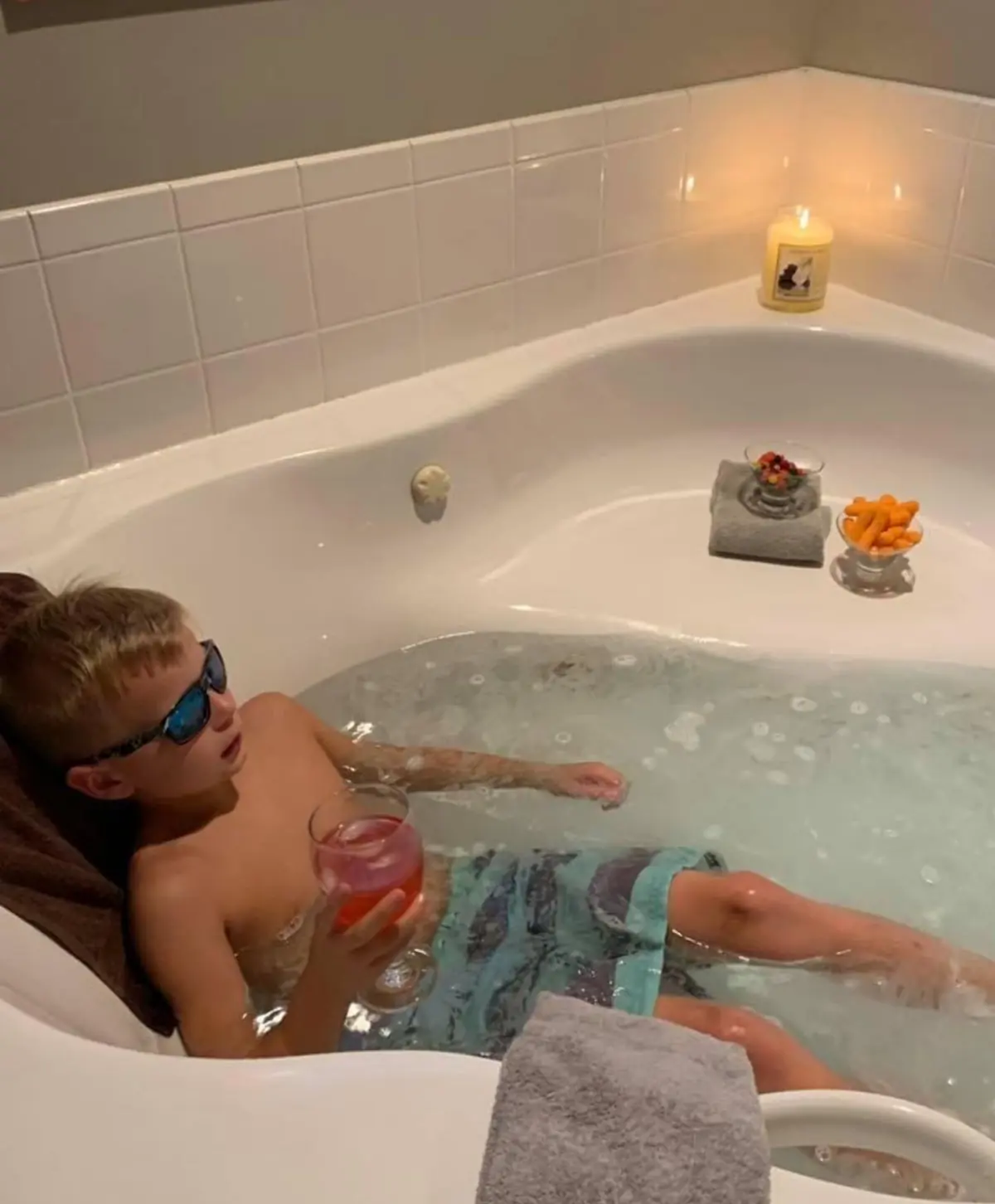
Discover a mother's journey through a challenging school year with her 8-year-old. This heartfelt story reveals the power of parental empathy, offering children space and quiet comfort as a profound expression of love.

Explore Angela Lansbury's lifelong love story with Peter Shaw, marked by unwavering support, personal sacrifices, and devotion. Discover their inspiring relationship, spanning over five decades, and how they overcame challenges together.

By boosting metabolism, aiding digestion, detoxifying the body, and providing essential nutrients, cumin water is a simple, effective addition to your daily routine.

The homeless girl approached the dying old man and drew a picture of his mother… When he saw the drawing, tears ran down his wrinkles

Packed with nutrient-dense ingredients like carrots, beetroot, orange, and flax seeds, this natural remedy helps brighten your complexion, reduce wrinkles, and give your skin a youthful glow.

— Yes, I have my own apartment now. No, my mother-in-law won’t be living here. Not even “temporarily.” I’ve had enough of your “family!”

After tracking my brother’s fiancée to a mysterious building, I uncovered a secret that shook me to the core—Sophia wasn’t who I thought she was. Here’s the shocking truth that changed everything.

Stuck in pur-gut-ory?
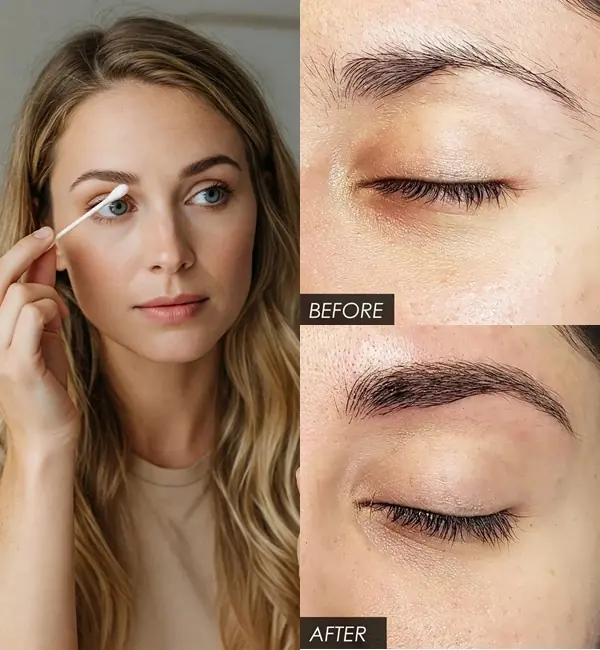
This DIY remedy can help you restore your eyebrows’ natural beauty without the need for expensive treatments or harsh chemicals.

A heartfelt story of betrayal and unexpected redemption, as a mother discovers the truth about her son's actions and finds comfort in an unlikely savior.

Kelly Barta was turning red.

Rich in beta-carotene, vitamin A, and antioxidants, this DIY oil helps hydrate, brighten, and rejuvenate the skin while reducing dark spots, fine lines, and wrinkles.

— You’ve been coming to stay in my house for the third month now, maybe that’s enough? — I couldn’t hold back, looking at the relatives’ suitcases.

Could advanced goggles help in identifying hidden swimmers?
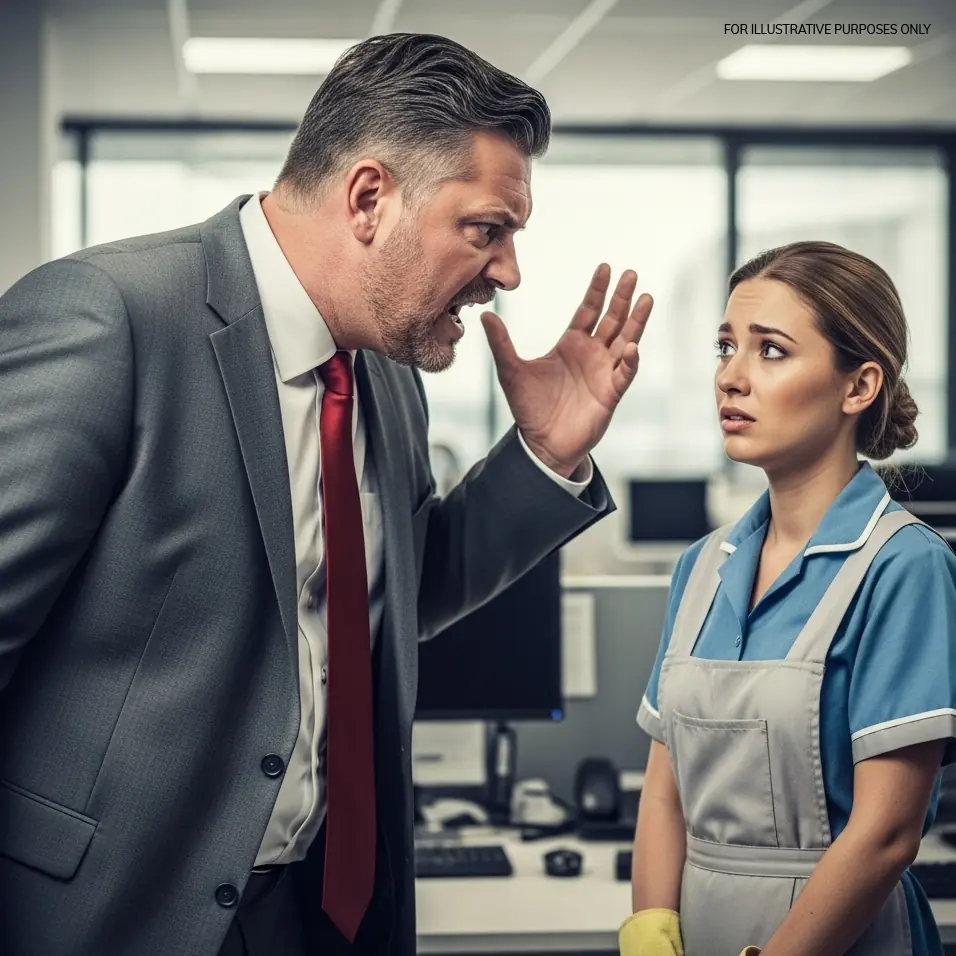
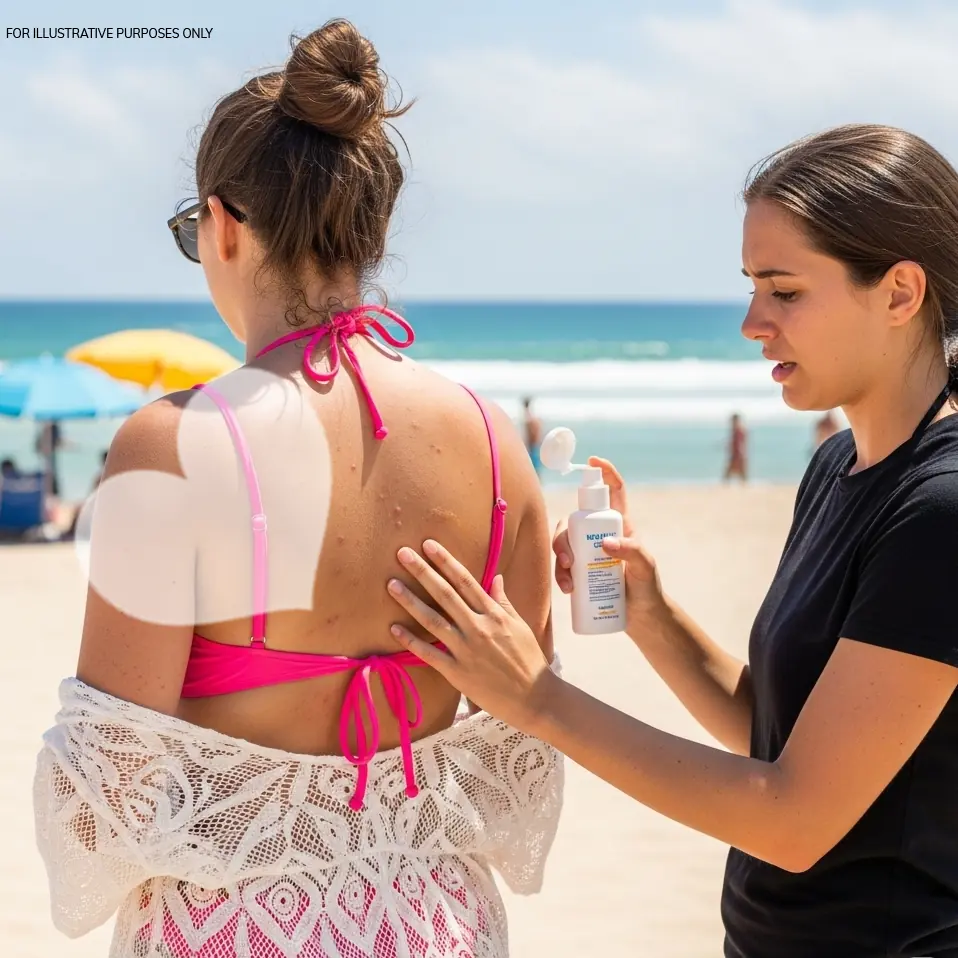
A 31-year-old woman's innocent request for sunscreen help at a family beach day accidentally triggers a devastating conflict that exposes hidden tensions and misunderstandings between siblings.
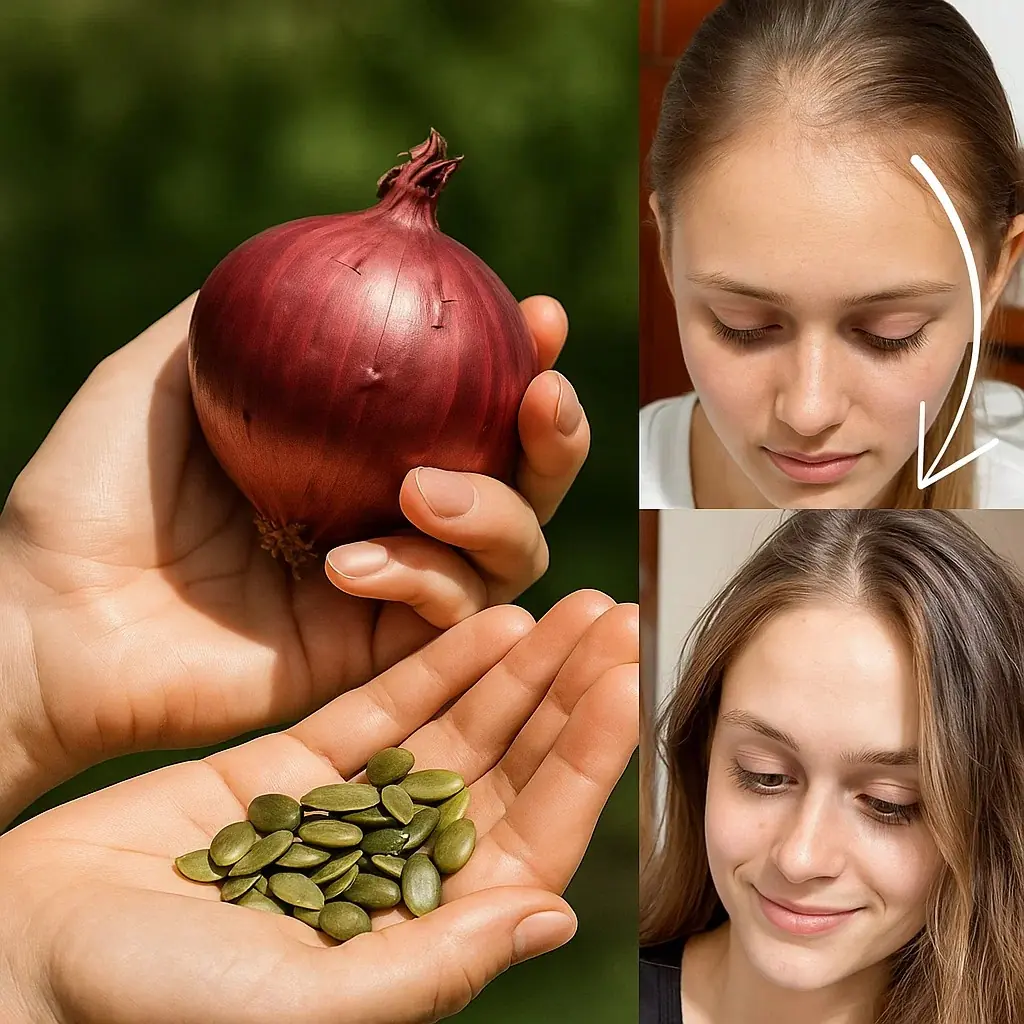
his simple yet potent DIY hair oil combines time-tested Ayurvedic herbs and modern knowledge of hair health to promote hair growth, improve scalp conditions, and prevent hair loss.

A father navigates the conflict between enforcing bedtime rules and keeping his daughter included in family activities. But when his wife disagrees with his decision, things get complicated.

A career-driven woman refuses her niece's offer to sew her a dress for a big event, leading to family tension. Is she being too harsh, or is her decision about professionalism and self-respect?